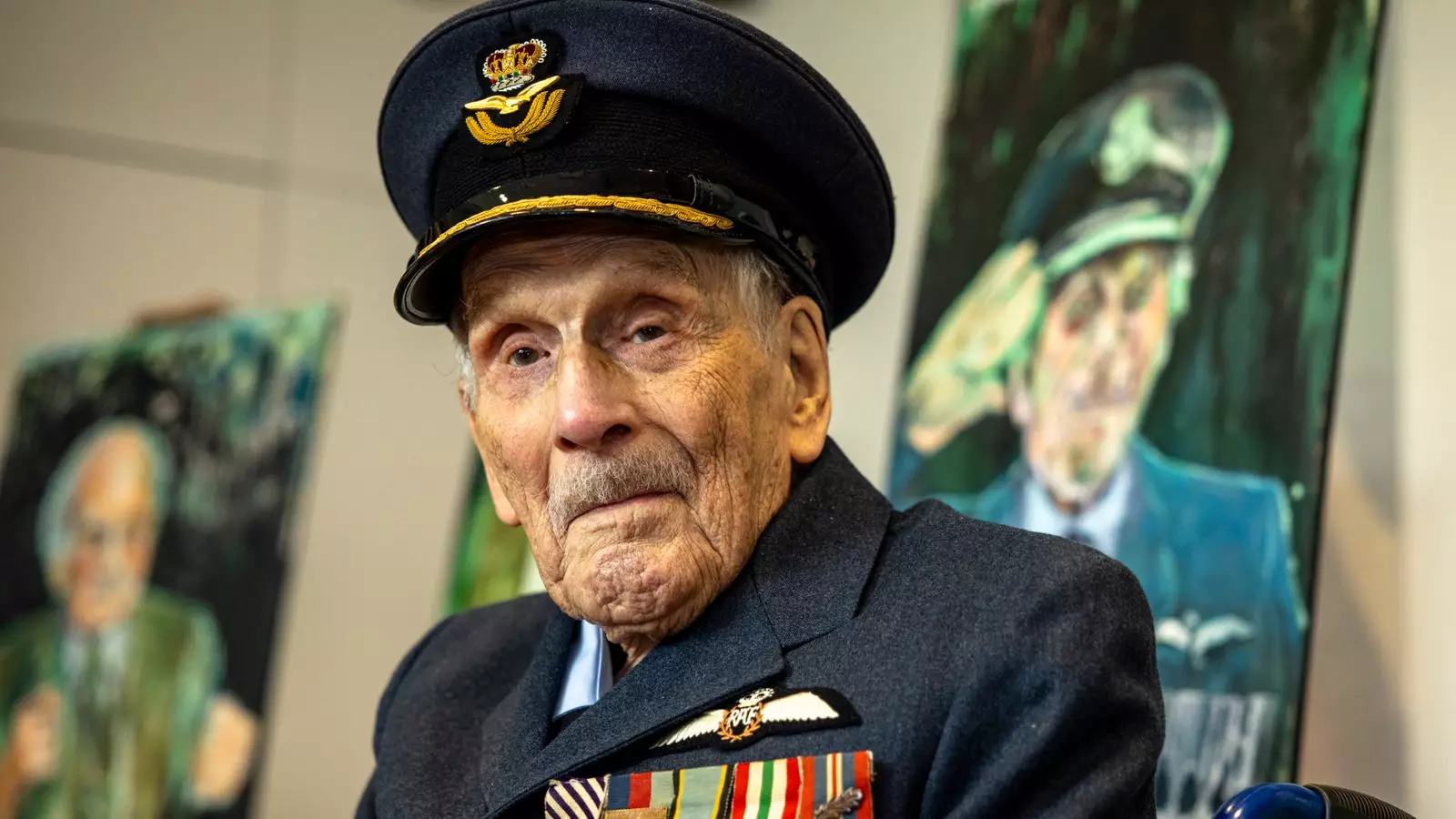The death of John ‘Paddy’ Hemingway at the remarkable age of 105 marks the end of an era that gloriously shaped British history. Known as one of “the Few,” Hemingway became synonymous with the bravery demonstrated by Royal Air Force pilots during the pivotal Battle of Britain in 1940. This moment, often glossed over in textbooks, deserves a deeper appreciation beyond mere facts. What does it mean for society today to remember individuals like Hemingway, who stood firmly against the tyranny of their time? To really grasp the implications of his legacy, we must explore not just his contributions to aviation, but the very essence of his character.
Hemingway’s feats were pervaded by a sense of duty rather than egotism. Unlike many heroes who bask in the glory of their deeds, he once described his endeavors in aerial combat as merely fulfilling the role he was trained for. Such humility is a stark contrast to the age of self-promotion we live in today, where personal branding often overshadows true virtue. Should we not channel more of Hemingway’s quiet resoluteness, returning to the roots of self-sacrifice without the incessant urge for recognition?
Courage Amidst Chaos
During those harrowing summer months in 1940, when the skies of Britain turned into battlegrounds, Hemingway’s squadron was instrumental in downing a staggering 90 enemy aircraft in just 11 days. His experience of bailing out not just once, but four times—a feat that should undermine any sense of bravado—underscores a foundational trait of humanity: resilience. His life story encapsulates the primal instinct to survive against all odds, qualities now often masked by our modern distractions.
When he was forced to parachute into hostile territory near Ravenna, Italy, Hemingway didn’t simply find himself in a crisis; he seized the opportunity to forge connections with local Italian partisans. This act underscores an often-overlooked aspect of bravery: the willingness to rely on mutual aid, to ask for help when in dire straits. In today’s increasingly fragmented society, where division is rampant, might we derive powerful lessons from Hemingway’s adaptability and willingness to cooperate across boundaries?
The Spirit of Resistance
Described as a man with a “twinkle in his eyes,” Hemingway demonstrated that the human spirit could flourish even in the darkest times. His recollections offered not just tales of warfare; they were manifestations of camaraderie, joy, and human connection. Such tales transcend the conventional narrative of war as merely a transaction of might. Instead, they unveil the deeper emotional undercurrents that define war experiences.
What we see in Hemingway’s character is the embrace of life’s joyful moments even while performing his harrowing duties. His survival from danger did not instill bitterness, but rather an appreciation for life, an attitude increasingly rare in our fast-paced world. In a society focused on grievances and traumas, Hemingway’s ability to remember the fun times with fellow aviators in Paris and London delivers a compelling counter-narrative.
Valuing Freedom and Sacrifice
His passing has elicited tributes from prominent figures, including Prime Minister Sir Keir Starmer, emphasizing the unquantifiable debt we owe to such courageous individuals. They gifted us freedom—the very bedrock of democratic societies. Perhaps what we need now is not mere acknowledgment of this sacrifice, but a renewed commitment to protect the freedoms historically won at such great cost.
The messages from Air Chief Marshal Sir Rich Knighton highlighting Hemingway’s embodiment of the Air Force’s spirit reflect a calls for unity and valor in our present struggles. We live in a world where freedom often risks being taken for granted. As we face challenges that test our ideals of liberty and equality, figures like Hemingway remind us that although far from perfect, the struggle for a just society requires relentless courage.
John ‘Paddy’ Hemingway may have departed, but the values he represented—humility, cooperation, resilience, and genuine camaraderie—remain essential. They pose challenging questions for today’s society: Can we transcend our individual differences to embrace common goals? Can we remember that our strength lies not just in powerful figures and grand gestures but also in ordinary acts of courage mirrored in heroes like Hemingway?

